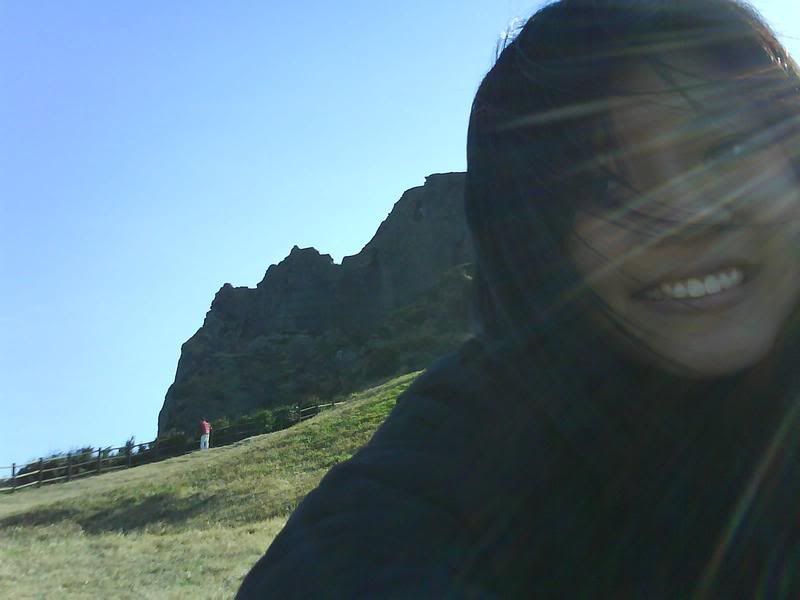According to Jeffrey Rosen, the answer is contradictorily both. While we would love to maintain our rights to privacy, the nature of “intimate relationships of trust” has undergone drastic changes that pressure us to “expose details of our personal lives to strangers in order to win their trust.” (Rosen, 2004) In the past, such relationships were based on shared experiences. (Rosen, 2004) Friends became friends because they went through certain encounters together. Relationships based on shared experiences fall into “rigidly controlled status hierarchies, which brought with them codes of expected behavior” (Rosen, 2004) - meaning every relationship can be distinctly identified as a distant or an intimate relationship, and such clear boundaries allowed people to know who they can and cannot share personal matters with.
But the emergence of the Internet changed the process of relationship formation. People no longer have to physically go through the same happenings in order to know one another. Through weblogs, instant messaging and other social networking websites like Friendster, one can be familiar with another even without meeting him/her in person. Such online relationships are hard to define. What do you call two individuals who chat everyday online but have never ever met each other in person? What relationship does a blogger and his/her reader share? The blogger may not know the reader but the reader knows every single detail of the blogger’s life. So are they friends? Acquaintances? Strangers? These are tough questions to answer. Today, with relationships resisting clear definitions, “intimacy and trust are increasingly obtained not by shared experiences or fixed social status but by self-revelation.” (Rosen, 2004) We try to prove our trustworthiness by revealing details of our personal lives, so as to show that we have nothing to hide. (Rosen, 2004)
Four years of blogging and the idea that I have been exposing myself voluntarily in exchange for a favorable reputation had never crossed my mind, not until I came across Rosen’s The Naked Crowd. Armed with skepticism and confidence, I went through several of my archived blog entries dated a couple of years back, determined to prove that I have not been unknowingly allowing others to infringe upon my privacy. But of course, as you would have guessed, what I read on those blog entries proved that I have. I told my blog, or rather my blog readers, more than what I have ever told anyone in a face-to-face conversation. Besides accounts of my daily life, my blog also contains photographs and videos of not just me but my friends as well. What I have revealed about myself on my weblog is enough for anyone to know me in depth; I can literally be read like a book. All bloggers in fact, not just I alone, can be easily read through and through.

There is nothing wrong with this of course, except for the fact that we have been raving about our lost of privacy when we are the ones who allowed it to happen in the first place. What I have divulged about myself on my weblog makes me such an easy target for sousveillance. Practicing this “art, science, and technology of personal experience capture, processing, storage, retrieval, and transmission” (Sousveillance, 2007) on me will be a breeze through my blog alone, where anyone can have easy access to my daily happenings, thoughts, photographs and videos. I have been cautious, however, not to disclose online any blatantly important information which I know can be easily manipulated by others. Information such as my home address, telephone number and even my email address, have never appeared on my blog. Yet even so, my privacy goes further and further out the window every time I publish a post on my blog.

We ourselves set the stage for our own online privacy to be infringed upon. We need to be aware of and control how much we reveal of ourselves online if we want to grasp on tight to the little privacy that we still hold in our hands. Whether or not you have privacy – you decide for yourself.
---
References:
Sousveillance. (2007, February 7). In Wikipedia, The Free Encyclopedia. Retrieved 03:33, March 10, 2007, from http://en.wikipedia.org/w/index.php?title=Sousveillance&oldid=106389703
Rosen, J. (19th July, 2004). "The Naked Crowd". Retrieved on 8th March, 2007 from http://www.spiked-online.com/Printable/0000000CA5FF.htm
Sullivan, B. (17th October, 2006). "Privacy Lost: Does Anyone Care?". Retrieved on 8th March, 2007 from http://www.msnbc.msn.com/id/15221095/print/1/displaymode/1098/

No comments:
Post a Comment